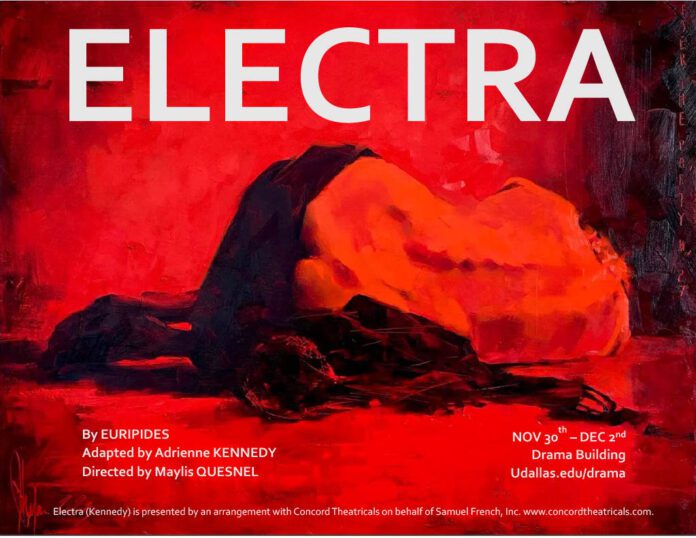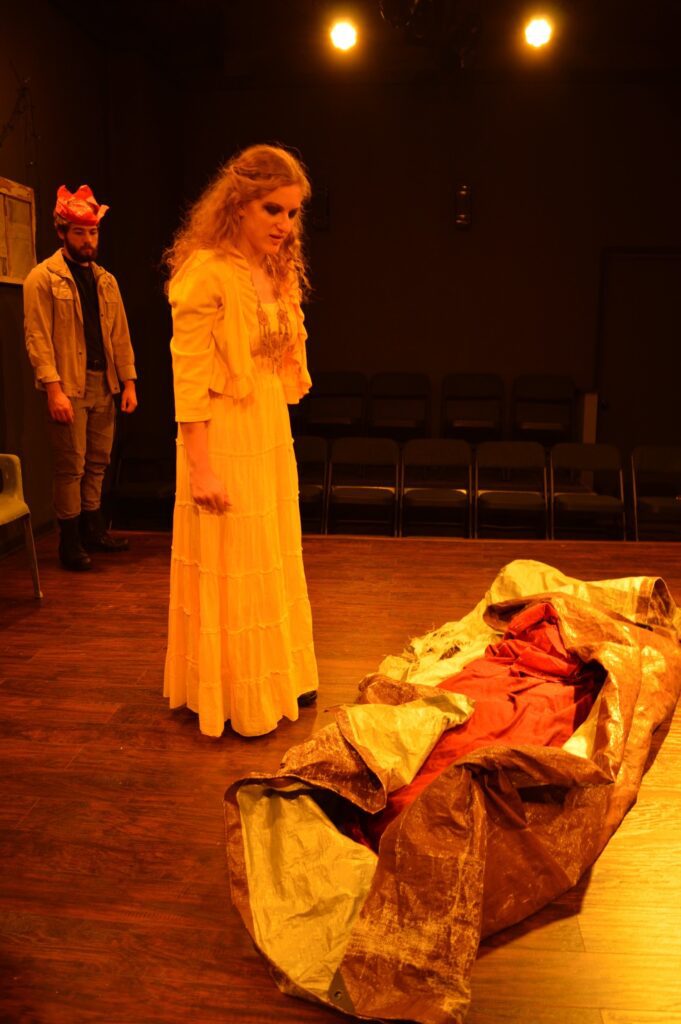
The senior studio productions of this year were both outstanding examples of artistic finesse and subtlety as well as slaps in the face for the audience. “The Magic Tower,” a tale of marital strife, slowly broke down the audience’s emotional expectations while “Electra” presented them with an unfamiliar force.
University of Dallas students know the tragic stories of Agamemnon, Clytemnestra, Orestes and Electra through their reading of the Oresteia by Aeschylus in Lit Trad III. This trilogy of plays reveals the cycle of horrors that overcomes the House of Atrius surrounding the events of the Trojan War.
This senior studio, “Electra” by Adrienne Kennedy, directed by Maylis Quesnel, is a one-act performance adapted from the tragedy by Euripides, familiar to UD students from their studies in Lit Trad III. The story of the House of Atrius is taxing to read as literature, rife with familial betrayal and personal suffering. However, it is easy to become so immersed in the Greek dramas as literature that we often forget that they were meant to be performed.
Quesnel was obviously inspired by methods used in Greek drama in her directing of “Electra,” methods that were unfamiliar to and unexpected by the audience. Some characters wore garish masks that were common in Greek drama. Many characters spoke Greek periodically during the performance, switching between languages quite seamlessly, in an interesting stylistic choice meant to hearken back to the play’s Greek heritage and remind us of its original setting in time and space.

The chorus, however, cast a particularly thrilling chill over the whole performance. Speaking in a strong unison, singing in harmony and discord, the well-practiced chorus helped the audience find their place in the story as well as set the overall tone.
A modern-day audience cannot prepare itself adequately for the performance of a play directed in these methods. The lights darkened and instead of rising again to open the scene, everything stayed dark, as your other senses were inhibited you were forced to focus in on the words and the sound of the chorus, speaking in and out of unison off stage.
When the lights came on again, I felt as though I was part of the actions on stage. As though I was a part of the prayers beseeching the gods, as though I was bearing witness to the murder of Clytemnestra, as though Orestes was confessing the guilt in this murder to me.
The close proximity of the stage paired with the power behind the characters and the performance drags you in. As you are pulled further into this play, you cannot help but be confronted by all of its atrocities. Revenge, guilt, sorrow; these characters are sucked into the murderous cycle of the House of Atrius and you, so present in all of the actions, are powerless to stop it.
It was a thought provoking delight to see a story I’ve known from my literary studies treated in its original medium, once again exemplifying the power and necessity of the theater.